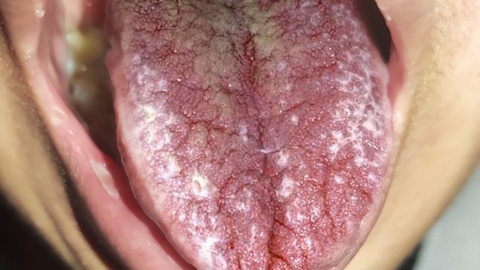How is oral lichen planus treated?
Generally, oral lichen planus may be related to factors such as local irritation,不良 lifestyle habits, drug reactions, infectious agents, and endocrine disorders. Depending on the specific situation, general treatment and medication may be used to treat or alleviate the condition. It is recommended to seek timely medical advice, identify the cause, and undergo symptomatic treatment under a doctor's guidance. A detailed analysis is as follows:

1. Local irritation: Residual tooth roots, broken crowns, or sharp cusps within the oral cavity may continuously irritate the oral mucosa, inducing or worsening oral lichen planus, which may cause pain and discomfort in the oral mucosa. It is recommended to eliminate these irritants, such as extracting irreparable residual roots or adjusting sharp cusps.
2. Unhealthy lifestyle habits: Long-term smoking, alcohol consumption, and eating spicy or irritating foods may damage the oral mucosa and increase the risk of developing oral lichen planus, potentially causing dryness or a burning sensation in the oral mucosa. It is recommended to improve lifestyle habits, quit smoking, limit alcohol intake, and avoid consuming irritating foods.
3. Drug reactions: Certain medications, such as nonsteroidal anti-inflammatory drugs and cardiovascular medications, may cause adverse reactions in the oral mucosa, triggering lichen planus. Patients are advised to discontinue the relevant medications as directed by a physician or switch to alternative drugs.
4. Infectious factors: Infections with certain bacteria or viruses may also be associated with the development of oral lichen planus. Patients may experience symptoms such as redness, swelling, pain, and erosion of the oral mucosa. Under a doctor's guidance, antiviral medications such as ribavirin granules, Siji Kangbingdu oral liquid, and erythromycin tablets may be used for treatment.
5. Endocrine disorders: Fluctuations in hormone levels, such as those occurring during pregnancy, may trigger lichen planus, accompanied by symptoms such as insomnia and irritability. Under medical guidance, patients may use herbal medicines such as modified Xiaoyao pills (Jiawei Xiaoyao Wan), Qizhi Xiangfu pills, and Zhenyuan tablets for treatment.
During treatment, patients should actively cooperate with their physician's recommendations, maintain healthy lifestyle habits and a positive mindset to promote recovery from the condition.




